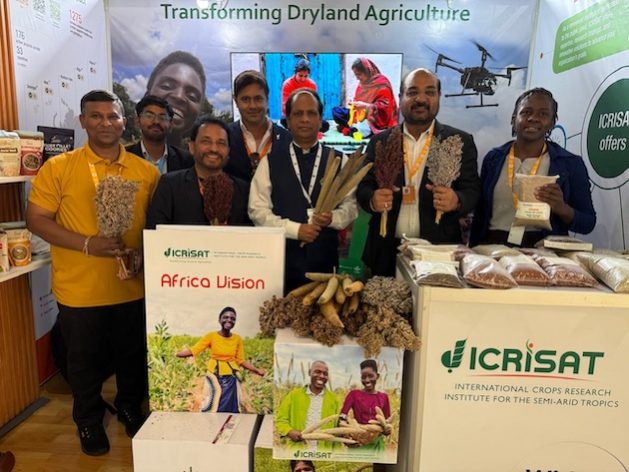NAIROBI, Apr 10 (IPS) – As agrifood systems in the Global South buckle under the weight of climate change, biodiversity, and even pollution, experts such as Dr. Himanshu Pathak call for urgent innovative solutions, as, at the current pace, the problems of the Global South are going to intensify with escalating climate change.
Pathak is the director general of the International Crops Research Institute for the Semi-Arid Tropics (ICRISAT), a global research institute focused on dryland agriculture. He has over 32 years of experience in climate resilience, soil and crop management, and sustainable agricultural systems.
Speaking to IPS at the CGIAR Science Week, he shared his insights into the deepening rural poverty and hunger across the Global South and what it would take to build agricultural resilience and sustainability.
“Changing climate, increasing temperature, and increasing pollution are going to intensify the problem of degradation of its land, water, and air. To solve these problems, we strongly believe that new science and new technology will be very useful to address those challenges. New science means developing new varieties that are resistant or tolerant to climatic changes,” he said.
“Varieties that are high yielding and at the same time better in nutrient content, which will help in promoting soil fertility, will not degrade the soil. Once we develop these varieties and new technologies, we have to reach these technologies to the farmers through a conducive policy environment.”
ICRISAT is on the frontlines of developing much-needed solutions through its regional stations in eight different countries in Africa and, in all, working with about 80 countries on different aspects of their research activities, such as on amended crops like millets, sorghum, pulses, pigeon peas, chickpeas, and oilseed-rich groundnuts.
“We do crop improvement, how to increase yield by developing new varieties, and how to improve nutrient content by developing bio-fortified varieties. We also work on how to manage soil, water, nutrients, fertilizer, and, of course, climate action, and we are actively engaged in social sciences, capacity building, education, training, and teaching.”
On why farmers do not always adopt new science and technologies, Pathak said they find it difficult to do so “without good policy and support and without good incentives. And there is also a great need for capacity building and skill development of farmers, as today’s technologies are quite knowledge i…




